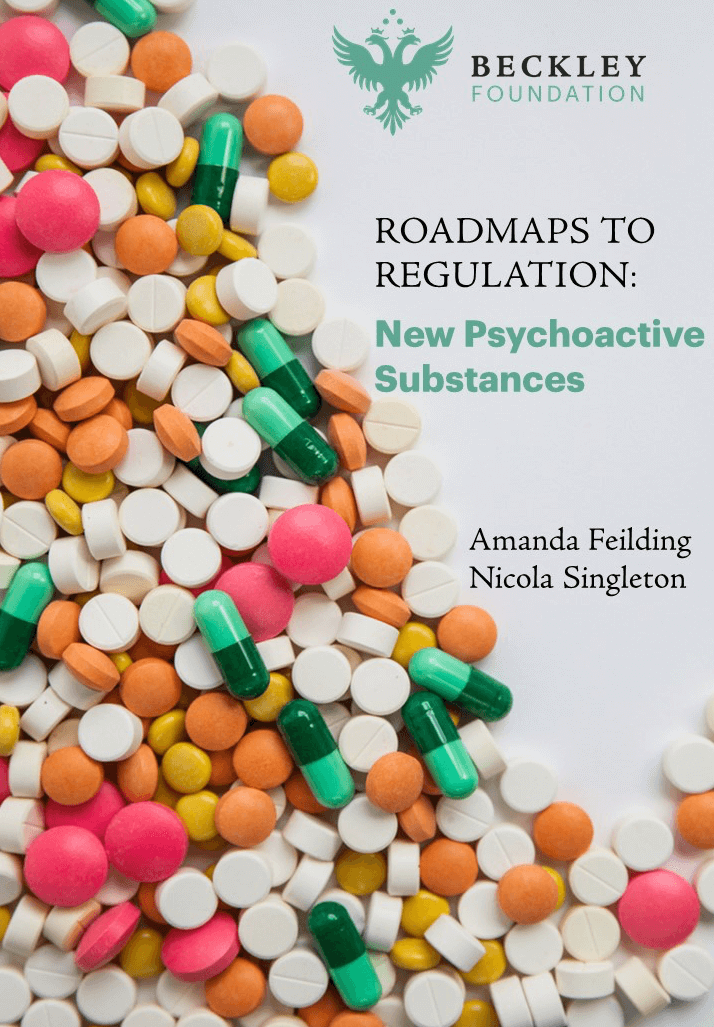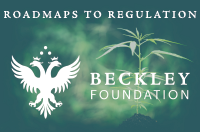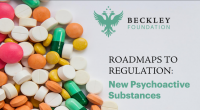
Roadmaps to Regulation: Cannabis, Psychedelics, MDMA, and NPS
The work of organisations such as the Beckley Foundation has helped create more interest in alternative options to the current drug control paradigm than ever before. It is becoming increasingly clear that the ‘War on Drugs’ has failed, so Amanda Feilding undertook the present report to address the growing appetite for drug policy reform.
Our Roadmaps to Regulation reports assess the harms related to four substance-types: cannabis, psychedelics, MDMA (‘Ecstasy’), and new psychoactive substances (NPS). They formulate models of strict regulation based on the developing evidence-base, and propose methodological tools for assessing the benefits and harms of the different regulatory models, which could be adapted to different national realities. Roadmaps to Regulation: New Psychoactive Substances was published in 2016 and in 2019 we released the latest instalment, Roadmaps to Regulation: MDMA.
Roadmaps to Regulation: Cannabis

Despite decades of prohibition, cannabis remains the most popular illicit drug in the UK and around the world. Those who choose to consume cannabis are largely dependent on a criminal market, and reliance on unregulated sources exacerbates the various social and health risks currently associated with cannabis use. Home-growing or relying on social supply networks can reduce these risks, but leaves users committing, or encouraging others to commit, the more serious offences of cultivation or drug supply. All of this is problematic for recreational users, and arguably worse for those who use cannabis for its increasingly well-recognised medicinal properties.
In recent years, we have seen many jurisdictions around the world experiment with various models of regulated cannabis markets – sometimes for medical use only, but increasingly for recreational use as well. Although not entirely unproblematic, these variations on legalisation remove the stigmatisation and criminalisation of users, reduce the potential health and social harms inherent in using unregulated cannabis products, break the link between use, criminal-market supply networks and the other forms of crime that often overlap with these, and enable those who do find cannabis to be medically or recreationally beneficial to obtain these benefits more easily. Regulated markets also reduce resource pressures on criminal justice agencies and health services, and can generate revenue for governments through taxation.
It is time for the UK to learn from the experiences of other countries, to rethink its drug policy and, in doing so, to reduce the harms associated with cannabis use under the status quo. This report provides a realistic roadmap towards the legal regulation of cannabis. It focuses on the UK market and criminal justice system, but draws on experimental policies from around the world, examining the pros and cons of each potential policy change. By demonstrating how policy reform can be implemented within specific contexts, this report will have global applicability.
It is for policymakers, drug reform advocates and anybody interested in effecting or witnessing the dismantling of cannabis prohibition and replacing it with an evidence-based, health-promoting policy, that will permit patients access to medical cannabis and reduce the harms associated with recreational cannabis use.
Roadmaps to Regulation: Cannabis
On 26 May 2016, the New Psychoactive Substances Act passed into UK law, rendering it illegal to buy, sell or supply any substance deemed to have psychoactive properties.
But what will happen to the public appetite for “legal highs,” and what will happen to the drugs themselves?
To mark the day, Amanda Feilding and the Beckley Foundation have released this chapter on NPS from our forthcoming report, “Roadmaps to Regulation: Cannabis, Psychedelics, MDMA and NPS.” The chapter explains the medical and social fallacies of applying a blanket ban to this vast array of chemically dissimilar substances, and strategises how we could legally regulate the unquellable market for NPS.
“Who would want N-(adamantan-1-yl)-1-(5-fluoropentyl)-1H-indazole-3-carboxamide when they could legally purchase cannabis?”
Amanda Feilding

Podcast
- All
Links
- All
Support
- All
BIPRP
- All
Science Talk
- All
Amanda's Talks
- All
- Video Talk
- Featured
- 2016 Onwards
- 2011-2015
- 2010 and Earlier
- Science Talk
- Policy Talk
One-pager
- All
Music
- All
Amanda Feilding
- All
Events
- All
Highlights
- All
Psilocybin for Depression
- All
Current
- All
Category
- All
- Science
- Policy
- Culture
Substance/Method
- All
- Opiates
- Novel Psychoactive Substances
- Meditation
- Trepanation
- LSD
- Psilocybin
- Cannabis/cannabinoids
- Ayahuasca/DMT
- Coca/Cocaine
- MDMA
Collaboration
- All
- Beckley/Brazil Research Programme
- Beckley/Maastricht Research Programme
- Exeter University
- ICEERS
- Beckley/Sant Pau Research Programme
- University College London
- New York University
- Cardiff University
- Madrid Computense University
- Ethnobotanicals Research Programme
- Freiburg University
- Medical Office for Psychiatry and Psychotherapy, Solothurn
- Beckley/Sechenov Institute Research programme
- Hannover Medical School
- Beckley/Imperial Research Programme
- King's College London
- Johns Hopkins University
Clinical Application
- All
- Depression
- Addictions
- Anxiety
- Psychosis
- PTSD
- Cancer
- Cluster Headaches
Policy Focus
- All
- Policy Reports
- Advisory Work
- Seminar Series
- Advocacy/Campaigns
Type of publication
- All
- Original research
- Report
- Review
- Opinion/Correspondence
- Book
- Book chapter
- Conference abstract
- Petition/campaign
Search type





